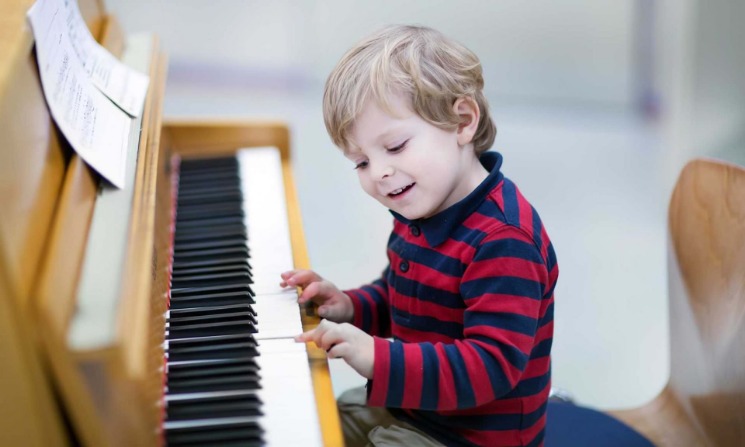Piano lessons for children with autism can be a transformative experience, offering both educational and therapeutic benefits. While each autistic child is unique, music can serve as a universal language that facilitates self-expression and cognitive development. This article delves into the significance of piano lessons for autistic children and provides insights on how to make the experience enriching and enjoyable.
The Therapeutic Power of Music
Music therapy has long been recognized for its potential to reach individuals in ways that other forms of communication cannot. For autistic children, engaging with music through piano lessons can offer benefits such as improved motor skills, enhanced concentration, and reduced anxiety.
Improved Motor Skills
Piano lessons require the coordination of both hands to strike different keys, often simultaneously. This activity helps in developing fine motor skills and hand-eye coordination. Aspiring young pianists must also learn to read sheet music, which can further enhance their cognitive abilities.
Enhanced Concentration
Learning to play the piano demands focus and discipline. The repetitive practice of scales, melodies, and exercises can help autistic children develop better attention spans. Over time, this can translate to improved concentration in other areas of their lives.
Personalized Approaches for Optimal Learning
Each autistic child has unique needs and abilities. To make piano lessons for an autistic child successful, a personalized approach is crucial. Here are some tips:
Understanding Sensory Sensitivities
Many autistic children have sensory sensitivities that can make traditional piano lessons challenging. Some may be sensitive to loud sounds, while others might find certain textures or lighting distracting. Understanding these sensitivities and adapting the learning environment can make a significant difference.
Using Visual Aids and Technology
Read more about Piano lessons for Autistic Child here.
Incorporating visual aids, such as color-coded keys, and technology, such as piano learning apps, can make lessons more engaging. These tools can help children understand musical concepts more clearly and provide a visual structure that makes learning easier.
Choosing the Right Instructor
A skilled instructor who is experienced in working with autistic children can make all the difference. Look for a teacher who is patient, adaptable, and knowledgeable about both music and special education techniques.
Building a Positive Relationship
The rapport between the instructor and the student is vital. Building trust and understanding can create a supportive learning environment where the child feels comfortable exploring their musical abilities.
Long-Term Benefits
Engaging in piano lessons can have lasting benefits for autistic children. Beyond the immediate joy of playing music, the skills they develop can enhance their overall quality of life. Improved focus, better motor skills, and increased confidence are just a few of the long-term advantages.
Boosting Self-Esteem
Mastering a musical piece or performing in front of an audience can be a huge confidence booster. These achievements, no matter how small, can help children feel a sense of accomplishment and pride in their abilities.
In conclusion, piano lessons for autistic children offer a unique blend of educational, emotional, and therapeutic benefits. With a personalized approach and the right instructor, these lessons can become a rewarding part of an autistic child’s development journey. As they progress, they will not only acquire a new skill but also discover a powerful avenue for self-expression and joy.

Leave a Reply